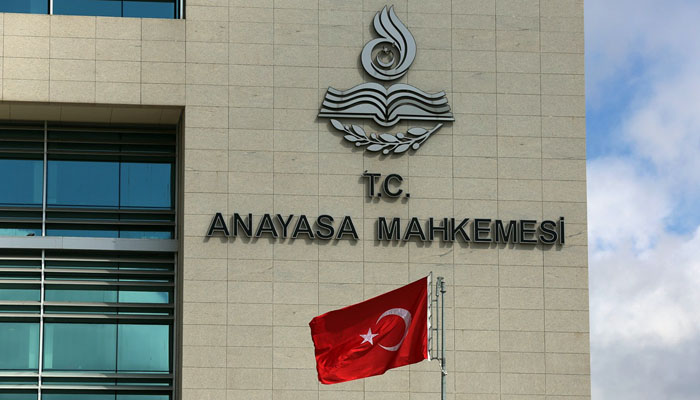The Freedom of Expression Association’s (İFÖD) EngelliWeb initiative has said in its 2022 annual report on internet censorship in Turkey that the Constitutional Court became an “entirely ineffective” mechanism for domestic remedy, the Diken news website reported on Monday.
The report, which was drafted by Professor Yaman Akdeniz from İstanbul Bilgi University’s law faculty and researcher Ozan Güven, said Turkish courts blocked access to 137,717 websites; 150,000 URLs, including 6,528 containing news items; 9,800 Twitter accounts; 55,500 tweets; 16,585 YouTube videos; 12,000 Facebook content/posts and 11,150 Instagram content/posts, in Turkey in 2022.
Seventy-nine percent of the bans on domains last year were issued by the Information and Communications Technologies Authority (BTK), requested by the Turkish Football Federation (TFF), the judiciary, the Capital Markets Board (SPK) and the Health Ministry.
According to the report, news websites critical of the Justice and Development Party (AKP) government, like Cumhuriyet, Evrensel, BirGün, Diken and Sendika.Org, received more politically motivated decisions concerning access blocks in Turkey.
The report reveals that Diken was at the forefront of fighting censorship in court in 2022. The Constitutional Court last year approved Diken’s application, stating that the decisions to block access to news websites were a violation of freedom of expression and press.
The court emphasized that these violations stemmed from structural issues and ordered the implementation of the “pilot decision procedure” and the notification of the situation to the Turkish parliament for resolving the structural problem. However, the parliament disregarded the decision.
When the top court identifies a recurring pattern of rights violations arising from a particular law, practice or administrative decision, it may issue a “pilot decision” or “pilot judgment.” This decision aims to address not just the individual case before the court but also similar cases or issues that are pending or may arise in the future.
The report showed that among a total of 338 applications covered by the Constitutional Court’s pilot decision procedure, Diken ranked first with 73 applications, followed by BirGün with 35 applications and Gazete Duvar with 32 applications.
High-level politicians or individuals closely associated with them were having news articles removed by citing “violation of personal rights” as the reason, the report said, adding however, that the peace court judges ordering the removal of the news articles failed to provide details on which personal rights were violated and how they were violated.
In the report, İFÖD pointed to the Constitutional Court as the main culprit for “arbitrariness” and stated that the top court was “buried in darkness and rendered powerless” in the face of severe violations of freedom of expression and press. The association also mentioned that the top court was overshadowed by the decisions of peace judges, making it an “entirely ineffective mechanism within the domestic legal system.”
Speaking to Diken about the report, Akdeniz said it mentioned that within this year, the EngelliWeb section on İFÖD’s website was blocked by two court decisions, in addition to the association’s 2021 report.
“Consequently, the task of documenting censorship is becoming increasingly challenging,” Akdeniz said.
Turkish authorities have in the last few years cracked down on websites, social media accounts and posts covering news stories critical of President Recep Tayyip Erdoğan and his ruling AKP, but this has led to accusations that freedom of expression has been curtailed.
Rights groups routinely accuse the Turkish government of trying to keep the press under control by imprisoning journalists, closing down media outlets, overseeing the purchase of media brands by pro-government conglomerates and using regulatory authorities to exert financial pressure, especially after President Erdoğan survived a coup in July 2016.
According to Reporters Without Borders (RSF), 90 percent of the national media in Turkey, which was ranked 165th among 180 countries in the RSF’s 2023 World Press Freedom Index, is owned by pro-government businessmen and toe the official line.

